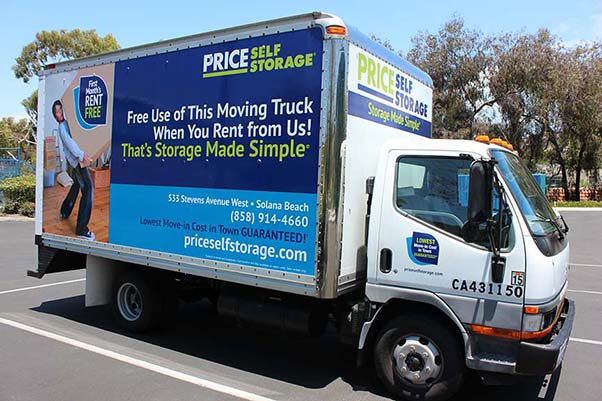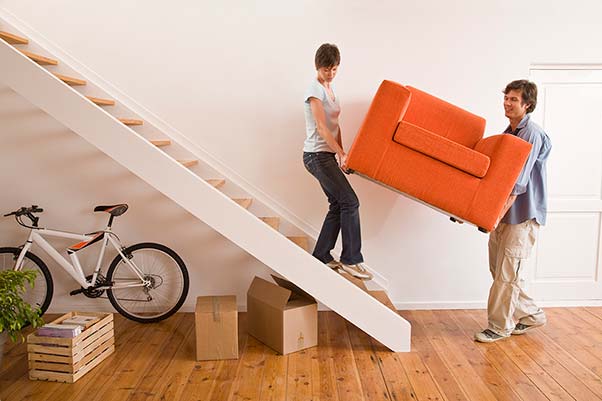One of the more important items on your to-do list during your move is transporting your belongings. Packing everything into boxes only gets you so far. You still have to load everything, transport it, unload, and unpack when you get to your destination. It would be nice if you could load all of your possessions in the back of your trusty old pickup and move it like the Beverly Hillbillies. Can’t you picture your family and all of your belongings in a 1920s Oldsmobile truck, headed down the highway toward your new home? You can’t? Well, thankfully, there are other options besides the family car.
If you hire a moving company, you won’t have to worry about all of the logistics of moving, as they will load your stuff into their own truck and move it for you. If you’re just moving across town and you want to save yourself a little money, however, you’re going to need a moving truck. Transporting everything you own from where it is now to where you want it to be will likely involve renting a truck from a rental company (unless you already own one…which doesn’t seem very likely). Before you get on the phone and book a truck for your move, though, here are some tips to help you pick the right truck and load it correctly.
Part One: Find the Right Truck for You
So, you have decided to rent your very own moving truck for a cross-town move; what comes next? What company should I rent from? How much will it cost? What size truck do I need? We’ll get to each and every one of these questions in this article. It all sounds very exciting, I’m sure…so sit back, relax, and let me tell you what you need to know to find the right truck for you.
Choose a Reputable Company
You can do quite a bit of research on rental companies on the Internet, so this is a good place to start. Look for companies that have been in business for a while and that have good online reviews. After you have a small list of rental companies and know the size truck you need, call them to get a quote. Some companies also offer online quotes. After you have a couple of quotes, you are ready to make a decision.
Choose the Right Size
This doesn’t seem like a difficult decision, however, if you choose a truck that is too small, you may not be able to fit all of your belongings. Choose one that is too big, and your possessions could shift around in transit and get damaged.
The first step in choosing the correct truck size is taking inventory of your house and the stuff in it. How many bedrooms do you have, and what big items will you need to move? Many truck rental companies can recommend the proper truck size based on how many rooms you are moving. Their estimates are based on the size of an average room and the cubic feet available in each truck. To figure out what size truck you will need, allow about 150 cubic feet of storage space in the truck for each furnished room in your home. The measurement of cubic feet of storage space in the truck takes into account all of the storage area from floor to roof. Since you are not a professional mover, you probably will not be able to take advantage of every bit of storage space, so if you have any doubts about fitting everything into the truck, get the next size larger. This will ensure that you don’t have to take multiple trips or leave items behind.
Here is an estimate that you can use when picking your truck:
- 10 ft. truck = Studio or small 1 bedroom
- 12-14 ft. truck = 450 cu. ft. or 1-2 bedrooms
- 16-17 ft. truck = 800 cu. ft. or 2-3 bedrooms
- 22-24 ft. truck = 1,200 cu. ft. or 3-4 bedrooms
- 26-27 ft. truck = 1,400 cu. ft. or 4+ bedrooms
These are only estimates; so again, make sure to take inventory of your house and belongings before you make a reservation for a storage unit. If you have more or larger furnishings, you may need to get a larger truck.
Fees & Insurance
Rental companies will usually charge you per day for the truck including mileage. Make sure to read your contract, however, to ensure that there are no mileage limitations or other hidden fees. You may have to pay extra for moving equipment such as packing supplies, pads, or dollies, or for insurance. In addition to rental fees, you will be responsible for the cost of gas. Since these large trucks don’t get very good gas mileage, this cost can add up quickly.
Finally, make sure to reserve your truck at least a couple of days in advance, especially if you are moving in the summer or toward the end of the month since these are usually the busiest moving times.










